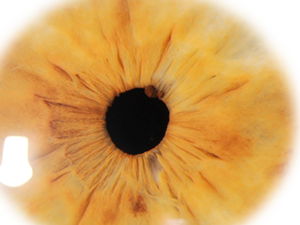Adolescent brains are more vulnerable to the negative effects of alcohol than adult brains. Misuse of alcohol during adolescence can alter brain development, potentially resulting in long-lasting changes in brain structure and function. In short, alcohol use during adolescence can interfere with structural and functional brain development and increase the risk for AUD not only during adolescence but also into adulthood. To help clinicians prevent alcohol-related harm in adolescents, NIAAA developed a clinician’s guide that provides a quick and effective screening tool (see Resources below). The developing adolescent brain is particularly vulnerable to alcohol-related harm.
Stages of the Addiction Cycle
If your pattern of drinking results in repeated significant distress and problems functioning in your daily life, you likely have alcohol use disorder. However, even a mild disorder can escalate and lead to serious problems, so early treatment is important. This is probably because people are using alcohol to deal with underlying problems rather than seeking out more effective long-term solutions for managing their challenges.
The Lure of Liquor: Pleasure in a Bottle
Years of chronic alcohol consumption have ravaged their body and mind, and their lives revolve around little else other than the bottle. As alcohol consumption increases, the liver adapts to break down alcohol more quickly. Over time, repeated alcohol exposure also alters a person’s brain chemistry. To counteract the sedating effects of alcohol, for example, the brain increases the activity of excitatory neurotransmitters, which speed up brain activity. Using alcohol during adolescence (from preteens to mid-20s) may affect brain development, making it more likely that they will be diagnosed with AUD later in life.
What is considered 1 drink?
In some people, the initial reaction may feel like an increase in energy. But as you continue to drink, you become drowsy and have less control over your actions. Much like unearthing the hidden cat food can was vital to understanding my cat’s behavior, uncovering im bored and drinking gives me something to do the deeper motivations behind alcohol use is crucial. We often only see troubled behavior, like the cat getting into the trash at night or the drinkers who continue to drink despite doctors‘ warnings, partners‘ ultimatums, or loved ones‘ pleas.
- Eventually, the brain becomes accustomed to this chemical imbalance, causing individuals to drink more in order to experience the “feel -good” feeling they had before.
- Our Neuro Rehabilitation approach helps address the reasons for substance abuse once and for all.
- Both did voluntary work, Marilyn in a charity shop and Ray as a mentor at the local secondary school.
- If you are concerned about your drinking or that of a loved one, the National Institute on Alcohol Abuse and Alcoholism has resources to help you identify problems and get help.
They didn’t have a lot of money but enjoyed long rambles in the countryside, as part of a local group, liked to socialise, and relished spending time at their allotment. Drinking too much can cause a range of consequences, and increase your risk for a variety of problems. See your doctor if you begin to engage in behaviors that are signs of alcohol use disorder or if you think that you may have a problem with alcohol. You should also consider attending a local AA meeting or participating in a self-help program such as Women for Sobriety. Get helpful tips and guidance for everything from fighting inflammation to finding the best diets for weight loss…from exercises to build a stronger core to advice on treating cataracts.
During this stage, someone may believe they are still functioning because they have a job and they are successfully maintaining relationships. In reality, this isn’t true, because after they consume their first alcoholic drink, they usually struggle to control their drinking. medication for the treatment of alcohol use disorder At times, our weakened mental or emotional state can be too much to bear, and some people may find the only solution to get through a difficult period is to use drugs or alcohol. Some people abuse substances, or self-medicate, to disconnect from the world.
Drinking alcohol increases gaba-aminobutyric acid, or GABA, which suppresses the central nervous system, the part of the body that regulates thoughts and helps us process information. At the same time, drinking alcohol increases serotonin, a neurotransmitter that helps us feel good, and triggers the release of dopamine, another neurotransmitter that motivates us to keep drinking. Their constant drinking lessens their ability to process and reason but also makes them feel good. Eventually, the brain becomes accustomed to this chemical imbalance, causing individuals to drink more in order to experience the “feel -good” feeling they had before. Moderate drinkers can consume alcohol and go days, weeks, or even years before they have another drink.
By drinking to cope, you’re avoiding dealing with the underlying problem(s), and your alcohol use can actually make them worse—for example, by interfering with relationships with family and friends. Individuals who experience trauma, or who are more prone to depression or anxiety, are more likely to report drinking to cope. If we chose modest consumption, identifying the proper environments and reasons to reach for a drink can feel empowering. Perhaps a glass of wine during a conversation with a friend is a pleasure we want to allow ourselves and helps us feel connected and engaged. Maybe alcohol is celebratory, or a chance to explore new cultures or experiences through taste.
When someone has an addiction to alcohol, drinking becomes an essential part of their life. Alcoholics might even prioritize drinking over family obligations, work, financial responsibilities, and social gatherings with friends. Regardless of their age, race, and gender, all alcoholics have a compulsive need to drink. Identifying the early stages of alcoholism can help prevent dependence and addiction. Some individuals may need additional help breaking their addiction to alcohol.
At this point, drinking is no longer just a casual social activity — it’s become a daily habit that may be used to cope with stress, anxiety or other emotional problems. By the time they’ve reached the third and final stage of alcoholism, drinking rehab for women has consumed their lives. Their alcohol withdrawal symptoms are so severe that they must drink continually to avoid them. In the beginning stages of alcoholism, drinking escalates and the individual develops an increased tolerance for alcohol.
If any of the following scenarios seem familar, it might be time to make some changes. If you’re new to university-level study, read our guide on Where to take your learning next, or find out more about the types of qualifications we offer including entry level Access modules, Certificates, and Short Courses. So while you may feel warm on the outside, you are getting cold on the inside. Alcohol consumption has also been shown to reduce the perception of cold air temperatures but it is thought that this effect may not come from changes in the dilation of blood vessels but may originate in the brain itself.
It is also known that alcohol acts on the process of long-term potentiation – the way in which neurons remodel the connections between them after learning. So alterations in both REM and slow wave sleep after drinking may potentially disrupt the brain’s memory processes. Despite the fact that we may opt to partake in a nightcap, research shows that certain doses of alcohol may reduce the amount of slow wave and REM sleep we have. So it may help us to drop off faster, but alcohol doesn’t result in a better quality of sleep. REM sleep is important for cognitive processes such as memory consolidation so reducing the time in which this process occurs has a detrimental effect on memory.
If someone close to you, such as a parent, has struggled with alcohol or substance abuse, you may carry the same genetic predisposition. The following is a breakdown of some of the most common reasons people may turn to substance abuse. We’re not talking about just the time with a glass (or can, or bottle) in your hand.

